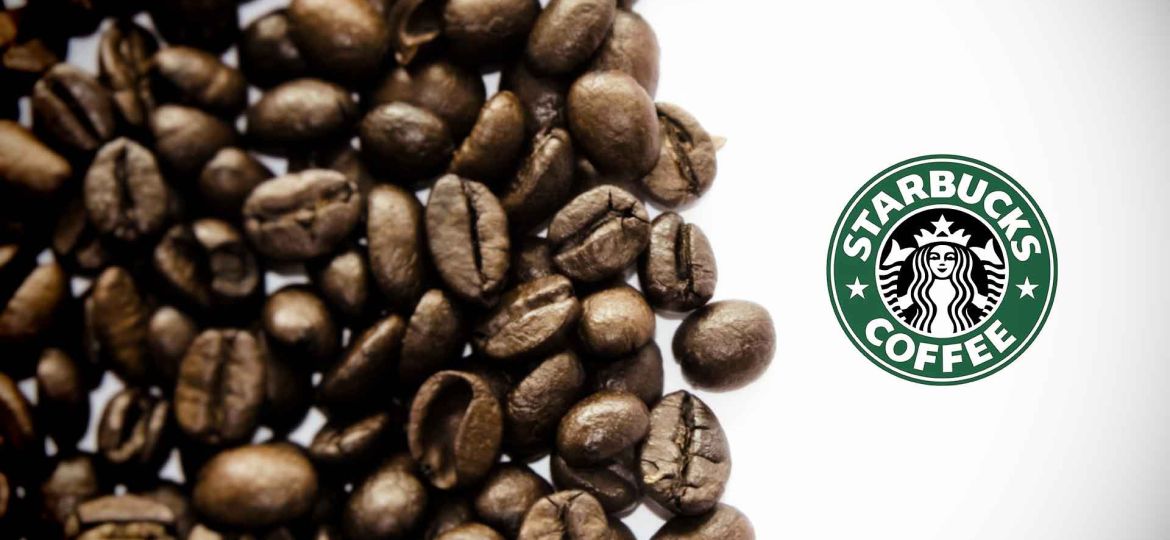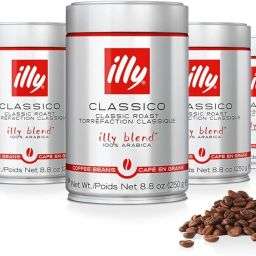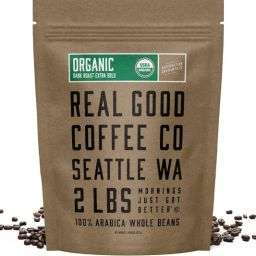
Starbucks, a household name and a global coffee giant, began its journey in 1971 at Pike Place Market in Seattle. It has since expanded into a global empire, with thousands of locations across the globe. Starbucks prides itself on its commitment to quality and sustainability, aiming to provide not just a cup of coffee but an exceptional experience for its customers.
The brand’s dedication to ethical sourcing and environmental stewardship is evident in its comprehensive approach to sustainability, from bean to cup.
Understanding GMOs in Agriculture
Genetically Modified Organisms (GMOs) are organisms whose genetic material has been altered using genetic engineering techniques. The primary purpose of GMOs in agriculture is to enhance crop yields, improve nutritional value, and provide resistance to pests and diseases.
Common GMO crops include corn, soybeans, and cotton. However, the use of GMOs has sparked a debate regarding their impact on the environment and health, with concerns ranging from potential ecological imbalances to questions about long-term health effects.
Types of Coffee Beans Used by Starbucks
Starbucks exclusively uses Arabica coffee beans, known for their superior quality and complex flavor profiles compared to other coffee bean varieties. Arabica beans are cherished for their nuanced flavors, which can range from sweet and fruity to rich and bold. Starbucks’ meticulous selection process ensures that only the best beans make it into their blends, contributing to the distinctive taste and high quality of their coffee.
Starbucks’ Stance on GMOs
Starbucks has made it clear that it has a strict policy against the use of GMO-based ingredients in its products. This commitment is part of the company’s broader dedication to sustainability and ethical sourcing. Starbucks works closely with suppliers to ensure that its coffee is not only of the highest quality but also grown and harvested using practices that are both ethical and sustainable.
By prioritizing non-GMO ingredients, Starbucks aims to provide its customers with products that are not only safe and delicious but also responsibly sourced.
Ethical Sourcing and Environmental Initiatives
Starbucks’ commitment to ethical sourcing is embodied in its Coffee and Farmer Equity (C.A.F.E.) Practices. This comprehensive program sets standards for the production of coffee that is not only high quality but also grown in a way that is environmentally responsible and beneficial for farmers.
Through these practices, Starbucks aims to ensure the sustainability of its coffee supply chains, focusing on aspects such as fair compensation for farmers, conservation of natural resources, and the well-being of communities involved in coffee cultivation.
In addition to C.A.F.E. Practices, Starbucks has made significant commitments to reducing its environmental impact. These include efforts to achieve carbon-neutral green coffee and to conserve water usage in green coffee processing by 50%, both by 2030. Such initiatives underscore Starbucks’ dedication to sustainability and its recognition of the crucial role that environmental stewardship plays in securing the future of coffee.
Quality of Starbucks Coffee
The quality of Starbucks coffee is a testament to the company’s rigorous standards, from sourcing to serving. Starbucks ensures the high quality of its coffee through its meticulous selection of Arabica beans, which are known for their superior flavor profiles.
The company’s roasting and blending practices are carefully designed to enhance the unique characteristics of each bean, resulting in a rich and nuanced coffee experience. By controlling every step of the process, Starbucks consistently delivers coffee that meets its high standards for taste, aroma, and freshness.
Consumer Concerns About GMOs
The public perception of GMOs and their safety remains a contentious issue. Concerns about the potential health risks and environmental impacts of GMOs have led to a growing demand for non-GMO and organic products. Consumers are increasingly seeking transparency regarding the use of genetically modified organisms in their food and beverages.
Starbucks’ policy against using GMO-based ingredients aligns with this trend, as the company seeks to address consumer concerns by ensuring that its coffee and other offerings are produced without the use of GMOs. This approach not only reflects Starbucks’ commitment to quality and sustainability but also responds to the evolving preferences of its customers.
Starbucks’ Transparency in Ingredients
Starbucks demonstrates a commitment to transparency regarding its coffee sourcing and ingredient use. The company provides detailed information about the origin of its coffee beans, the ethical practices behind their cultivation, and the efforts made to ensure sustainability throughout its supply chain.
This level of openness extends to its stance on GMOs, with Starbucks actively engaging in consumer advocacy by ensuring that its products are free from GMO-based ingredients. Such transparency is a response to the growing consumer demand for clear and accessible information about the food and beverages they consume.
Starbucks’ Response to GMO Labeling and Consumer Advocacy
Starbucks’ approach to GMO labeling and consumer advocacy reflects a broader industry trend towards greater transparency. The company supports initiatives that promote awareness and provide consumers with the information they need to make informed choices.
Starbucks’ policies align with consumer advocacy groups’ calls for clear labeling and the availability of non-GMO options, illustrating the company’s alignment with consumer values and concerns regarding food safety and environmental sustainability.
Comparison With Other Brands
Compared to other coffee brands, Starbucks stands out for its proactive stance on non-GMO sourcing and transparency. While many brands have begun to offer non-GMO products in response to consumer demand, Starbucks’ comprehensive approach encompasses not only the avoidance of GMO ingredients but also a broader commitment to ethical sourcing and environmental stewardship.
The coffee industry has seen a rise in non-GMO certifications and labels, such as the Non-GMO Project Verified seal, which serves as a benchmark for transparency and integrity. Starbucks’ efforts in this area highlight its role as a leader in the movement towards more sustainable and responsible coffee production practices.
Overall, Starbucks’ commitment to transparency in ingredients, its response to GMO labeling, and its comparison with other brands underscore the company’s dedication to quality, sustainability, and consumer trust. By prioritizing non-GMO ingredients and ethical sourcing, Starbucks sets a standard for transparency and responsible practices in the coffee industry.
FAQs
Does Starbucks Use Organic Coffee Beans?
While Starbucks offers a range of coffee options, including organic selections, not all of its coffee beans are certified organic. The company places a strong emphasis on ethical sourcing and sustainability, with some blends and single-origin coffees being certified organic to cater to consumer preferences for organic products.
Are Starbucks Coffee Beans Certified as Ethically Sourced?
Yes, Starbucks coffee beans are certified as ethically sourced. The company’s Coffee and Farmer Equity (C.A.F.E.) Practices ensure that its coffee is grown following high standards of social responsibility and environmental stewardship. These practices cover aspects such as worker rights, conservation of ecosystems, and community development.
What Measures Does Starbucks Take to Ensure Coffee Quality?
Starbucks ensures the quality of its coffee through rigorous standards that include selecting high-quality Arabica beans, adhering to strict roasting protocols, and conducting continuous taste testing. The company’s commitment to quality is evident in its sourcing practices, roasting expertise, and the training provided to its baristas.
Can Consumers Choose Non-GMO Options at Starbucks?
Yes, consumers can choose non-GMO options at Starbucks. The company has a policy against using GMO ingredients in its products, striving to offer beverages and foods that meet consumers’ preferences for non-GMO options. Starbucks’ commitment to transparency and quality allows consumers to make informed choices regarding their purchases.
Conclusion
Starbucks’ use of Arabica beans and its firm stance against GMOs underscore its commitment to quality, transparency, and environmental sustainability. The company’s efforts to ethically source its coffee beans, along with its initiatives to reduce environmental impact, reflect a comprehensive approach to sustainability. Starbucks’ adherence to C.A.F.E. Practices and its support for non-GMO products demonstrate its alignment with consumer values and concerns.
The emphasis on offering organic and ethically sourced coffee options highlights Starbucks’ dedication to providing high-quality and sustainable choices for its customers. As the discussion around GMOs and coffee continues to evolve, Starbucks remains a key player in promoting informed consumer choices and sustainable practices in the coffee industry.
The company’s commitment to these principles not only enhances the coffee experience for its customers but also contributes positively to the global coffee community and the environment.









